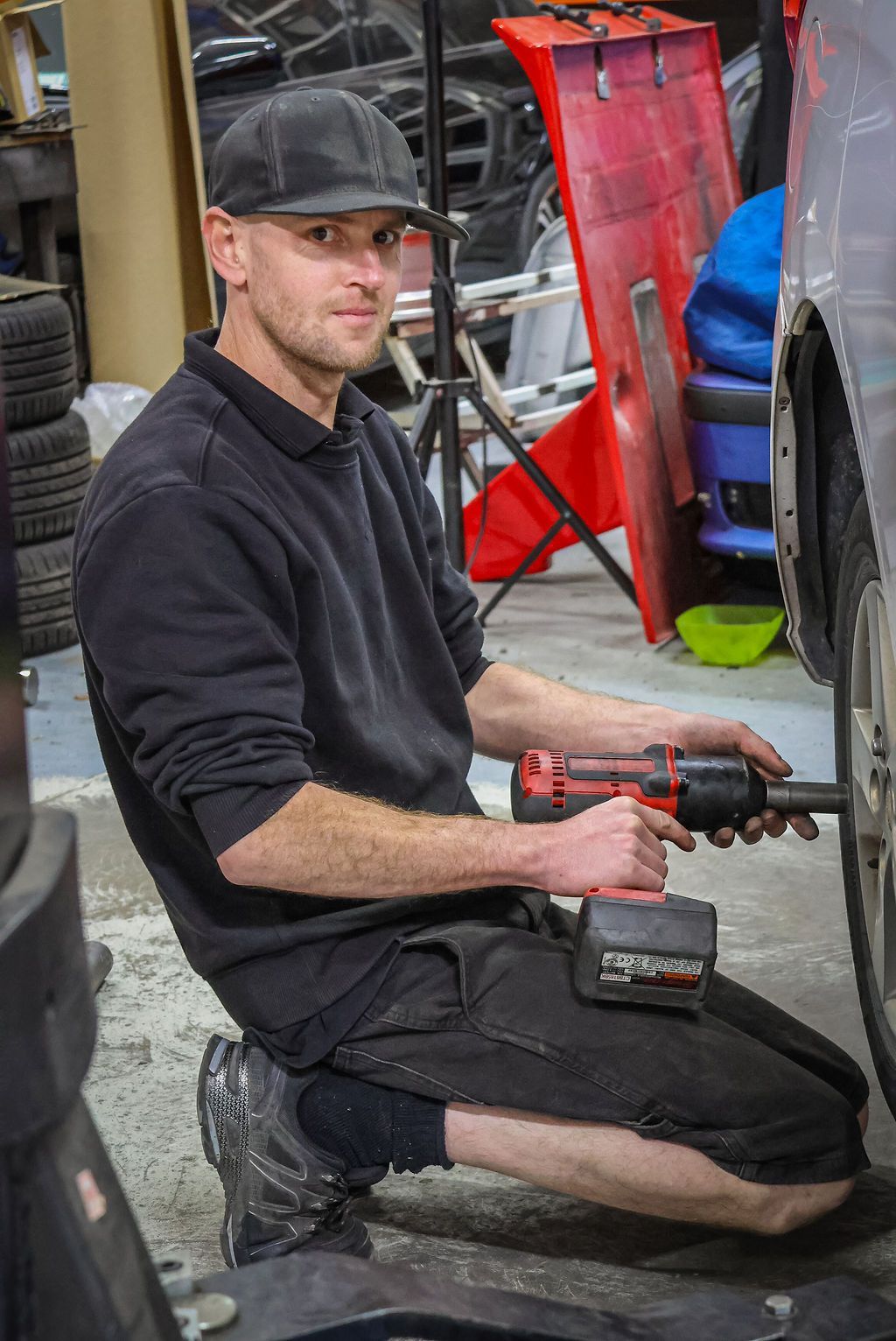Got a flashing engine warning light on your dashboard?
Let
Quintin and the team at DCH Autosport in Wigram, Christchurch, get to the bottom of it with advanced diagnostics and expert service.
At DCH Autosport, we pride ourselves on accurate fault diagnosis the first time.
With years of experience and specialist training, our auto electrical technicians are trusted to solve complex issues—even the ones other workshops can't figure out.
We’re equipped with cutting-edge diagnostic tools that allow us to work on all makes and models, including European vehicles.
Our equipment includes -
- Multiple diagnostic scanners
- Brake, battery, and shock absorber testers
- Ignition system analysers
- Alternator and starter motor test bench
Check Engine Light?
Once we’ve identified the issue, we’ll clearly explain the fault and work with you to agree on the best and most cost-effective repair solution.
For expert diagnostics and repairs in Wigram,
book with
DCH Autosport—where experience, accuracy, and the right tools come together.

Common reasons why your check engine light might be on
The check engine light on your dashboard can come on for a number of reasons. The light illuminates whenever you turn your car on, but it should go out again shortly afterwards.
If it stays on or is flashing, then it could indicate one of the following problems.
Battery Failure
If the battery is faulty, undercharged, or has poor electrical connections, it can lead to battery failure due to low voltage.
Engine Temperture
Engine temperature indicates if your engine is overheating. High readings can signal cooling issues and risk engine damage.
Petrol Cap
A loose, cracked, or faulty petrol cap can trigger a warning light. Often, tightening or replacing it is a quick, simple fix.
Airflow Sensor
The mass airflow sensor measures air intake to adjust fuel levels. A faulty sensor can reduce fuel efficiency and trigger a warning light
Oil Pressure Light
Oil pressure shows if your engine is losing oil pressure. It could mean your oil is low or point to a more serious engine issue.
Warning lights can indicate issues that not only affect your safety on the road but could also lead to your vehicle failing its Warrant of Fitness inspection. If you notice any warning lights and suspect a fault, book your vehicle with us—we’ll diagnose the problem and carry out any necessary mechanical repairs.





Make an
booking
And we’ll get right back to you.
Diagnostics
Thank you for contacting us.
We will get back to you as soon as possible.
Kind regards,
Quintin Baker – 03 348 3189
Sent from my iPhone
Please try again later.
Privacy Policy | This site is protected by reCAPTCHA and the Google Privacy Policy and Terms of Service apply.
FAQ - Transmission Questions & Answers
What does a full transmission service include?
A full transmission service involves more than just changing the fluid. It typically includes -
- Draining or flushing the old transmission fluid and refilling it with fresh fluid
- Removing and inspecting the transmission pan (if accessible) for debris or metal shavings
- Cleaning the pan thoroughly before reinstallation
- Replacing or cleaning the transmission filter or screen to ensure proper fluid flow
- Installing a new pan gasket to prevent future leaks
- Inspecting related components, such as hoses, mounts, and seals, for wear or damage
- Performing a test drive and leak check to confirm smooth operation and proper shifting
- This comprehensive approach helps maintain transmission health and prevent costly repairs down the line.
How do I know if my car needs transmission service?
You may need transmission service if you notice any of the following signs:
Delayed or rough shifting between gears
Unusual noises like clunking, whining, or grinding
Sluggish acceleration or lack of response when pressing the gas
Transmission fluid leaks under your vehicle
Burning smell from under the hood
Check engine or transmission warning light on the dashboard
Vibrations or shuddering while driving
If you experience any of these symptoms, it’s important to have your vehicle inspected by a qualified technician to avoid further damage.
Is it worth fixing a broken transmission?
Fixing a broken transmission can be worth it depending on your vehicle’s age, condition, and value.
If your car is relatively new, has low mileage, or holds strong resale value, investing in a transmission rebuild or repair can extend its life and save money over replacing the vehicle.
However, for older vehicles or those with low market value, the cost of transmission repair may exceed the car’s worth.
In such cases, it might be more practical to consider replacing the vehicle.
The quality of the repair or rebuild is key—using a trusted, experienced mechanic helps ensure long-term reliability and performance.
Is it cheaper to rebuild a transmission or replace it?
Yes, it can be worth fixing a broken transmission—if your vehicle is relatively new or has a high resale value, investing in a rebuilt or repaired transmission may be a smart decision.
However, for older cars or vehicles with low market value, the cost of repair might not be financially justifiable.
The quality of the rebuild plays a major role. Choosing a reputable transmission specialist ensures the work is done properly and that the repaired transmission will be reliable for years to come.
Always weigh the repair cost against your car’s current value and how long you plan to keep it.
How long does it take to fix a transmission?
Fixing a transmission can take anywhere from one to four days, depending on the type of repair needed and the make and model of your vehicle.
A standard transmission replacement usually takes 1–2 days.
More complex or specialty models may take 3–4 days.
In some cases, you may not need a full replacement—minor repairs to a specific component can often be completed within a single day.
The exact time depends on the availability of parts, the extent of the damage, and the workload of the repair shop.speciality
